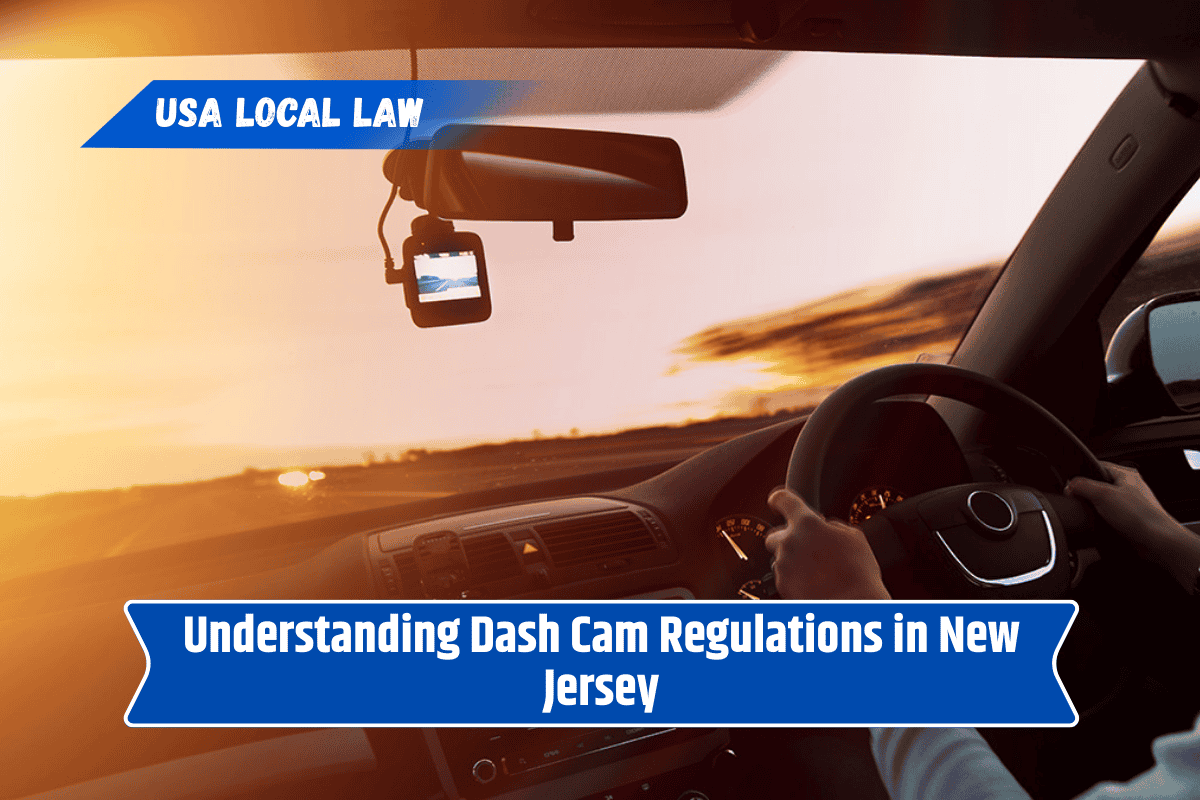Dash cams have become increasingly popular for drivers looking to document their journeys, provide evidence in case of accidents, or simply record scenic drives. However, like many other aspects of driving, using a dash cam comes with its own set of regulations.
If you’re in New Jersey or planning to drive there, it’s important to understand the local laws about dash cams. In this article, we’ll break down the key points about dash cam regulations in New Jersey, so you can use your device safely and legally.
Are Dash Cams Legal in New Jersey?
Yes, dash cams are legal to use in New Jersey. Drivers are allowed to install and use dash cameras in their vehicles, whether for personal use or to collect evidence in case of an accident. However, like with any technology used in a vehicle, it’s important to understand the rules to ensure you’re using it responsibly and legally.
What to Know About Dash Cam Placement
While dash cams are legal, their placement in your vehicle matters. New Jersey law is quite clear about the use of any device that obstructs the driver’s view of the road. If a dash cam or any other accessory blocks your windshield, it could be seen as a violation of the law.
According to the New Jersey Motor Vehicle Commission (MVC), the area directly in front of the driver, including the windshield, should be clear of any objects that could interfere with driving.
This means you need to ensure that the dash cam is mounted in a way that doesn’t obstruct your view. Typically, the best spot to mount your dash cam is behind the rearview mirror, where it won’t block your field of vision. Avoid placing the camera directly in front of the driver’s eyes or in any area that might obscure the road.
Audio Recording and Privacy Concerns
Another important aspect to consider when using a dash cam in New Jersey is the issue of audio recording. While the state does not specifically ban recording audio in vehicles, New Jersey is a “one-party consent” state when it comes to recording conversations.
This means that you can legally record audio in your car if you are a part of the conversation. However, if your dash cam picks up conversations involving other people without their consent, this could raise privacy concerns, especially if the recording is used in a legal situation.
If you plan to use your dash cam to record conversations, it’s best to inform passengers about the recording. In general, it’s a good practice to avoid relying on your dash cam to record audio unless necessary.
Dash Cams and Law Enforcement
In New Jersey, dash cams can be useful in cases of traffic violations or accidents. If you are involved in a crash, having a dash cam recording can provide important evidence. In some cases, police officers might even request to view footage from a dash cam if they believe it could aid in their investigation of an accident or traffic offense.
That said, law enforcement may also have guidelines regarding how dash cam footage is handled, particularly if the footage is used as evidence in a legal case. It’s important to understand that while dash cam footage can be helpful in legal proceedings, it must be obtained and presented in a way that complies with the law.
Dash Cam Usage During Traffic Stops
When you are stopped by law enforcement, you are not prohibited from recording the interaction with your dash cam. However, the same rules apply as with other forms of recording: you should not interfere with the officer’s duties or act in a way that could be seen as obstructing or hindering the police.
Recording a traffic stop can be helpful, but always ensure that the camera does not distract you or the officer.
It’s also essential to note that New Jersey law prohibits using any device that could distract the driver while on the road. If your dash cam setup or any other device takes your attention off the road, it could lead to a traffic violation or safety risk.
Using Dash Cams for Insurance and Legal Protection
One of the primary reasons people use dash cams is for insurance purposes. If you’re involved in an accident, having video footage from your dash cam can serve as crucial evidence to support your claim.
Insurance companies and legal authorities may accept dash cam footage as valid evidence in accident claims, especially if it can clearly show who was at fault.
That said, it’s always important to ensure that the footage is clear and unaltered, as any doubts about the authenticity of the footage might lead to complications in a legal case.
Dash cams are legal and widely used in New Jersey, but they come with certain rules and responsibilities. It’s important to ensure your dash cam is placed in a way that doesn’t obstruct your view of the road, and you should be aware of the state’s privacy laws regarding audio recording.
Dash cams can be a valuable tool for documenting accidents, supporting insurance claims, or recording traffic stops, but it’s crucial to use them responsibly. Always prioritize safety and legality when using your dash cam on New Jersey roads.
